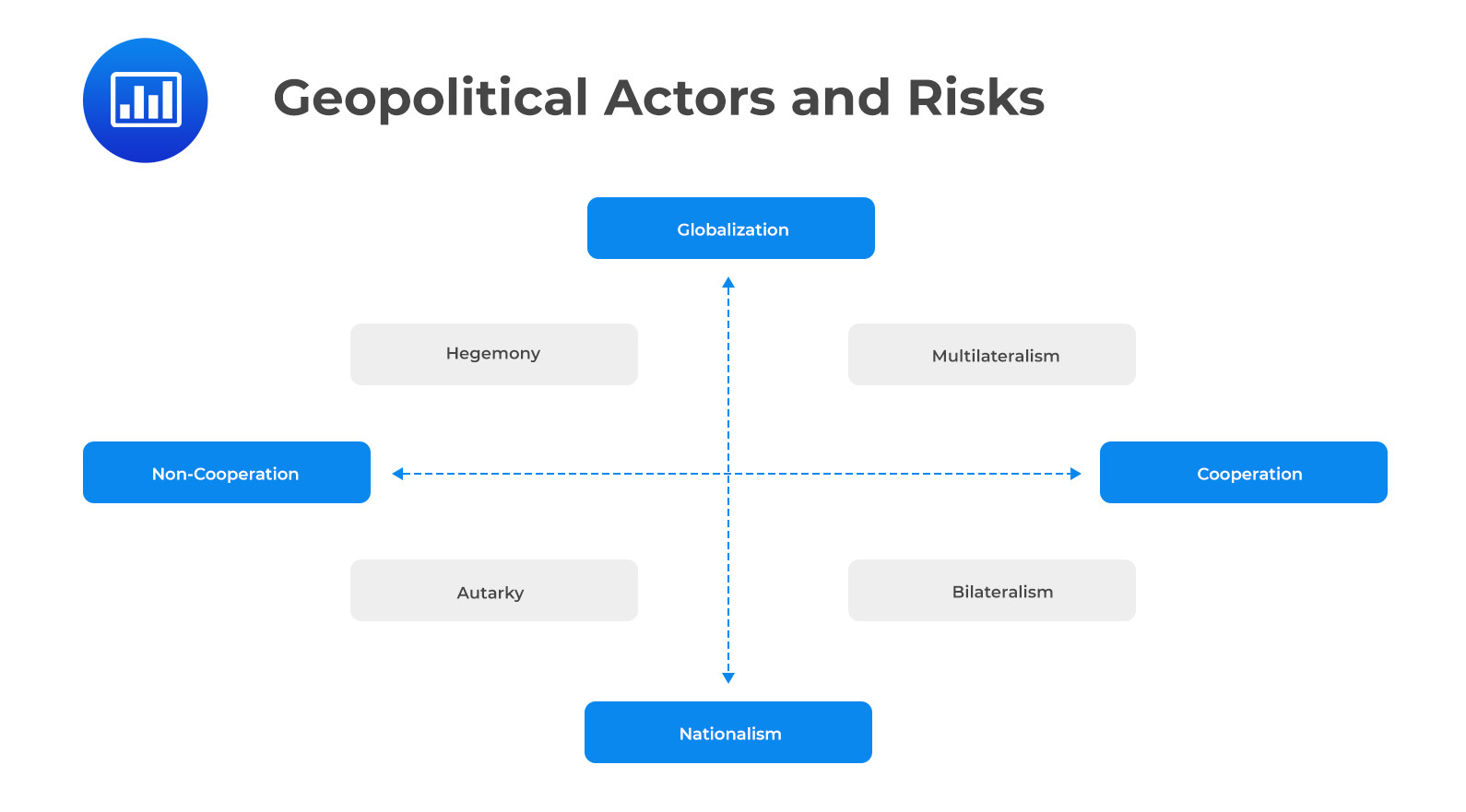Fiscal Policy
Fiscal policy involves the utilization of government spending and altering tax revenue to... Read More
Geopolitical risk is the risk posed by tensions or acts between parties that impact the regular and peaceful development of international relations. When the geographic and political elements influencing country relations change, geopolitical risk increases. A change in legislation, a natural disaster, a terrorist attack, a heist, or a conflict could all result in a geopolitical risk shift.
Based on political cooperation versus non-cooperation and globalization versus nationalism, there are four archetypes of country behavior: Autarky, Hegemony, Multilateralism, and Bilateralism.

This refers to nations with little foreign trade or financing and seeking political independence. Since they are self-sufficient, autarkic nations can exert complete control over the flow of products, services, and technology. This makes them politically stronger.
During times of autarky, a nation’s political and economic growth can advance more quickly. A case in point is China in the 20th century. However, it can also result in a gradual loss of economic development. North Korea qualifies as a good example in this regard.
Hegemonic nations often lead regions or the world, exerting political and economic control to secure resources. Countries aligning with the hegemon gain access to the benefits it provides.
A country with a hegemonic system can influence global affairs, while countries aligning themselves with the hegemon’s rules may enjoy rewards from the global leader. However, as a hegemon’s influence dwindles, it may become more competitive and consequently increase geopolitical risk. An example is Russia’s influence on natural gas supply, which influences countries that rely on its natural gas.
These are nations that engage in rule harmonization and mutually beneficial trade agreements. Their businesses have several trading partners and are totally linked to global supply chains. A good example is Singapore. Among other benefits, multilateralism allows a country to access resources and markets globally.
However, such a country may become highly dependent on international cooperation for its economic growth. This makes them more vulnerable to geopolitical risk.
Bilateralism is the practice of two nations cooperating in the political, economic, financial, or cultural spheres. Even though bilateral agreements are made one at a time, governments that engage in bilateralism may have relationships with several distinct nations.
Japan was once a bilateral country that built a strong export market for its products. Bilateral agreements are not enough to deal with global issues such as global tax avoidance.